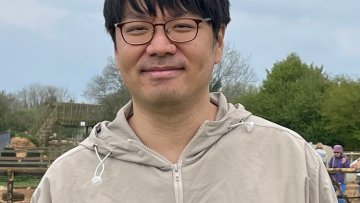Approaches to the Skolem Problem
Abstract
The Skolem Problem asks to decide whether a linearly recurrent sequence (LRS) over the rationals has a zero term. It is sometimes considered as the halting problem for linear loops. In this talk we will give an overview of two current approaches to establishing decidability of this problem. First, we observe that the Skolem Problem for LRS with simple characteristic roots is decidable subject to the $p$-adic Schanuel conjecture and the exponential-local-global principle. Next, we define a set $S$ of positive integers such that (i) $S$ has positive lower density and (ii) The Skolem Problem is decidable relative to $S$, i.e., one can effectively determine the set of all zeros of a given LRS that lie in $S$.
The talk is based on joint work with Y. Bilu, F. Luca, J. Ouaknine, D. Pursar, and J. Nieuwveld.


